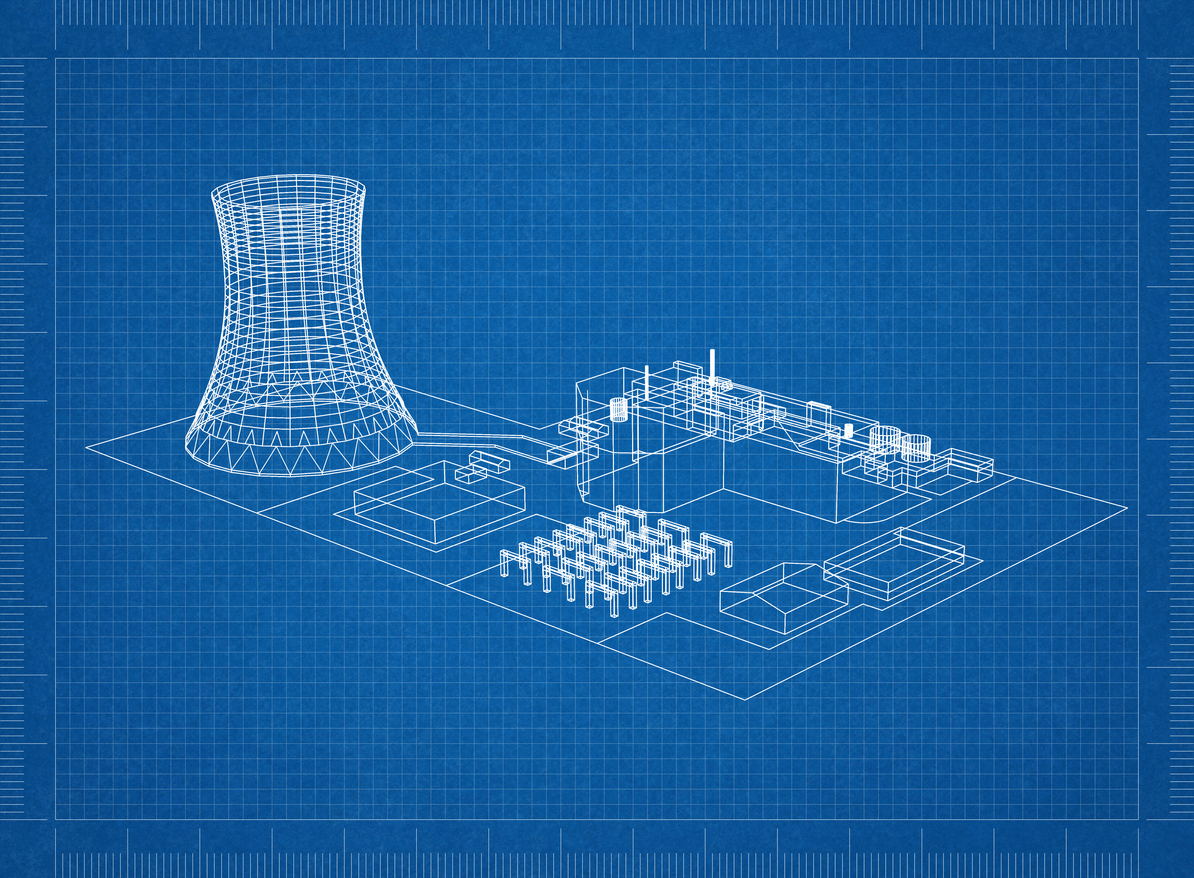The Role of Wigmore Trading in Advancing Nigeria’s Nuclear Fuel Processing Industry
The Role of Wigmore Trading in Advancing Nigeria’s Nuclear Fuel Processing Industry
From powering homes and businesses to propelling scientific research, the role of nuclear energy in Nigeria cannot be understated. And at the forefront of advancing the country’s nuclear fuel processing industry is Wigmore Trading. Join us as we delve into how this innovative company is shaping the future of energy production in Nigeria and beyond.
Introduction to the Nigerian Nuclear Fuel Industry
Introduction to the Nigerian Nuclear Fuel Industry
Nigeria, as a rapidly developing country with a growing demand for energy, has been exploring various options to diversify its energy sources. One of the most promising and highly debated options is nuclear energy. The use of nuclear energy in Nigeria dates back to the 1950s when uranium deposits were first discovered in the country. However, it was not until 1976 that Nigeria established its first nuclear research reactor.
The Nigerian Nuclear Fuel Industry can be divided into two main sectors: production and processing. The production sector involves the extraction of uranium and thorium ores from mines located in different parts of the country. On the other hand, the processing sector is responsible for converting these raw materials into usable nuclear fuel.
The main players in Nigeria’s nuclear fuel industry include government agencies such as the Nigerian Atomic Energy Commission (NAEC) and private companies like Wigmore Trading Company Limited. These entities work together towards developing a sustainable and efficient nuclear fuel industry in Nigeria.
One of the major challenges faced by Nigeria’s nuclear fuel industry is limited domestic processing capacity. This means that most of the uranium ore extracted from mines is exported for processing, resulting in a loss of potential economic benefits for the country. However, with initiatives such as Wigmore Trading’s partnership with NAEC to establish a local uranium conversion facility, there are hopes for significant developments within this sector.
Another crucial aspect of Nigeria’s nuclear fuel industry is safety and regulatory measures. The Nigerian Nuclear Regulatory Authority (NNRA) was established under Act No 19 of 1995 to ensure compliance with international standards and regulations regarding safety and security measures associated with radioactive materials used or produced within the country.
Furthermore, efforts are being made to enhance human resources development within this field through training programs offered by institutions like NAEC’s Center for Energy Research and Training (CERT). These initiatives aim to equip Nigerians with specialized skills needed to contribute effectively to the growth of the nuclear fuel industry.
Nigeria’s nuclear fuel industry is still in its early stages of development but has great potential for growth and contribution to the country’s economic progress. With partnerships like that between Wigmore Trading and NAEC, along with proper regulation and human resource development, the Nigerian Nuclear Fuel Industry is on its way towards becoming a major player in the global energy market.
The Need for Advancement in Processing Nuclear Fuel
The Need for Advancement in Processing Nuclear Fuel
Nuclear energy has long been recognized as a reliable and efficient source of electricity, but the process of producing nuclear fuel has remained relatively unchanged for decades. However, with the growing demand for clean and sustainable energy sources, it is becoming increasingly important to advance our methods of processing nuclear fuel.
One of the main reasons for this need is safety. The traditional method of processing nuclear fuel involves using highly corrosive chemicals such as nitric acid, which can pose significant risks to both human health and the environment. In addition, this method produces large amounts of radioactive waste that must be carefully managed and disposed of. Any advancements in processing techniques that can reduce or eliminate these risks would not only improve safety but also make nuclear energy a more attractive option.
Another factor driving the need for advancement in processing nuclear fuel is efficiency. Currently, only a small percentage of the mined uranium is actually used as fuel in a reactor. This means that much of the valuable resource goes to waste during the traditional processing method. By improving our techniques, we can extract more usable uranium from each tonne mined, making it a more cost-effective and sustainable energy source.
Moreover, advancements in processing technology have the potential to increase power output from existing reactors. This could help meet the ever-growing demand for electricity without having to build new plants or expand current ones, reducing costs and minimizing environmental impact.
The need for advancement in processing nuclear fuel is further highlighted by global efforts towards non-proliferation and disarmament. Traditional methods produce plutonium as a by-product which can be used to develop weapons if not handled properly. By developing safer and cleaner methods of processing nuclear fuel, we can significantly reduce proliferation concerns while still meeting our energy needs.
Investing in advanced nuclear fuel processing technology will also bring economic benefits. With an improved process comes increased productivity and competitiveness on an international level. This will create employment opportunities, attract foreign investment and boost the overall economy.
In order to fully tap into the potential of nuclear energy as a sustainable source of electricity, it is crucial to advance our methods of processing nuclear fuel. Not only will this enhance safety and efficiency, but it will also have positive environmental, economic and global security implications. Through Wigmore Trading’s efforts in advancing Nigeria’s nuclear fuel processing industry, we can pave the way towards a cleaner and more sustainable future for generations to come.
The Role of Wigmore Trading in the Industry
Wigmore Trading is a leading company in the Nigerian nuclear fuel processing industry, playing a crucial role in advancing and modernizing the sector. With over 20 years of experience, Wigmore Trading has established itself as one of the most reliable and innovative companies in this field.
One of the key roles of Wigmore Trading is its contribution to the development and utilization of advanced technologies for nuclear fuel processing. The company has invested heavily in research and development, continuously seeking out new and improved methods to enhance the efficiency and safety of nuclear power generation. This has allowed Nigeria to keep pace with other countries that are leaders in this industry.
In addition to developing advanced technologies, Wigmore Trading also plays a critical role in supplying high-quality materials for nuclear fuel processing. The company sources its materials from reputable international suppliers, ensuring that they meet all necessary quality standards. This not only guarantees the safe operation of nuclear facilities but also helps reduce production costs, making it more economically viable for Nigeria to continue expanding its nuclear energy capacity.
As part of its commitment to advancing the industry, Wigmore Trading also provides comprehensive training programs for local technicians and engineers involved in nuclear fuel processing. These programs aim to equip them with cutting-edge knowledge about modern processes and techniques used in this field. By investing in local human resources, Wigmore Trading is helping build a skilled workforce that can support the sustainable growth of Nigeria’s nuclear energy sector.
Furthermore, Wigmore Trading works closely with regulatory bodies to ensure compliance with national laws and international guidelines on safety measures for handling radioactive materials. This collaboration helps promote responsible practices within the industry while maintaining strict control over potential hazards associated with nuclear fuel processing.
Additionally, as an advocate for environmental sustainability, Wigmore Trading actively promotes green initiatives within the industry by using eco-friendly processes and minimizing waste generation during production activities. This demonstrates their commitment not only towards enhancing economic growth but also towards preserving our environment for future generations.
Wigmore Trading’s role in the Nigerian nuclear fuel processing industry is multi-faceted and crucial. From developing advanced technologies to providing quality materials and promoting responsible practices, the company continues to play a significant role in advancing this vital sector for the country’s energy needs. With its unwavering dedication to innovation and sustainability, Wigmore Trading is well-positioned to continue driving growth and progress in Nigeria’s nuclear fuel processing industry.
How Wigmore Trading is Advancing the Industry
Wigmore Trading has been playing a vital role in advancing Nigeria’s nuclear fuel processing industry, driving significant progress and innovation in this sector. Through its strategic partnerships, state-of-the-art facilities, and advanced technologies, the company has been able to revolutionize the way nuclear fuel is processed and supplied in Nigeria.
One of the key ways Wigmore Trading is advancing the industry is through its strong collaborations with international partners. The company has established relationships with leading global suppliers of nuclear materials and equipment, allowing them to access cutting-edge technologies and expertise from around the world. These partnerships have enabled Wigmore Trading to stay at the forefront of advancements in nuclear fuel processing techniques, bringing these innovations to Nigeria for the benefit of the country’s energy sector.
In addition to its international partnerships, Wigmore Trading also invests heavily in research and development (R&D) activities. The company’s dedicated R&D team works tirelessly to develop new processes and techniques that can improve efficiency, quality control, and safety standards in nuclear fuel processing. This commitment to innovation has earned Wigmore Trading a reputation as an industry leader, setting new standards for excellence within Nigeria’s nuclear fuel processing market.
Moreover, Wigmore Trading continuously upgrades its facilities with state-of-the-art equipment and infrastructure. The company operates one of the most advanced nuclear material handling facilities in Nigeria – equipped with specialized equipment designed specifically for safely handling radioactive materials. This facility adheres to strict regulatory guidelines set by both local authorities and international bodies such as the International Atomic Energy Agency (IAEA).
Through these efforts, Wigmore Trading ensures that all aspects of their operations meet or exceed all safety regulations mandated by Nigerian law. This commitment goes beyond just complying with legal requirements; it reflects their dedication to achieving best practices throughout their operations.
Furthermore, as part of its mission to advance the industry sustainably,Wigmore Trading places great emphasis on environmental responsibility. All processes are carried out using eco-friendly methods and technologies, minimizing the impact on the environment, and ensuring the safety of surrounding communities.
Wigmore Trading is a leading force in advancing Nigeria’s nuclear fuel processing industry. Through its collaborations with international partners, cutting-edge R&D activities, state-of-the-art facilities, and commitment to environmental responsibility,Wigmore Trading has been able to drive significant progress in this sector and pave the way for a sustainable future for Nigeria’s energy needs.
– Investment in Technology and Infrastructure
As part of its commitment to advancing Nigeria’s nuclear fuel processing industry, Wigmore Trading has made significant investments in technology and infrastructure. These investments have played a crucial role in driving the growth and development of the industry, while also positioning Nigeria as a key player in the global nuclear market.
One of the main areas where Wigmore Trading has invested heavily is in advanced technology for nuclear fuel processing. The company has partnered with leading international suppliers to acquire state-of-the-art equipment and machinery for various stages of the fuel processing cycle. This includes technologies such as centrifuges, ion exchange columns, and solvent extraction systems, which are essential for enriching uranium and producing high-quality nuclear fuel.
These advanced technologies have not only increased efficiency and productivity but also enhanced safety measures in the production process. With advanced automation and monitoring systems, Wigmore Trading ensures that all operations are carried out with precision and accuracy, reducing the risk of human error or accidents. This has significantly improved the quality control standards of Nigeria’s nuclear fuel production.
In addition to investing in technology, Wigmore Trading has also focused on developing critical infrastructure necessary for a robust nuclear industry. This includes modern laboratories equipped with cutting-edge instruments for conducting comprehensive analysis and testing of raw materials and final products. The company has also established a dedicated research and development center to continuously improve processes and develop new techniques for efficient production.
Furthermore, Wigmore Trading has invested in building secure storage facilities for enriched uranium products before they are transported to power plants or exported to other countries. These facilities comply with strict international regulations regarding storage requirements for radioactive materials, ensuring utmost safety at every stage.
The significance of these investments by Wigmore Trading goes beyond just improving Nigeria’s domestic capabilities in nuclear fuel processing. It also positions the country as an attractive destination for foreign investment in this sector. With world-class infrastructure and advanced technology already in place, potential investors can confidently consider partnering with Nigerian companies like Wigmore Trading to establish a strong foothold in the growing African nuclear market.
Wigmore Trading’s investment in technology and infrastructure has been instrumental in advancing Nigeria’s nuclear fuel processing industry. These initiatives have not only enhanced domestic capabilities but also opened up opportunities for international partnerships and investments. With continued support from companies like Wigmore Trading, Nigeria is well on its way to becoming a major player in the global nuclear market.
– Collaboration with International Partners
Collaboration with international partners has played a crucial role in the advancement of Nigeria’s nuclear fuel processing industry. The partnerships between Wigmore Trading and various international organizations have brought in much-needed expertise, technology, and investment to support the growth and development of the industry.
One of the key partnerships that Wigmore Trading has established is with Rosatom, Russia’s state-owned nuclear corporation. This collaboration has been instrumental in setting up a new nuclear power plant in Nigeria, which will be operated using Russian technology and expertise. This project is expected to significantly boost the country’s energy production capabilities and reduce its reliance on fossil fuels.
Wigmore Trading has also partnered with China National Nuclear Corporation (CNNC) to establish a joint venture for uranium exploration and mining in Nigeria. This partnership not only brings in advanced technology for uranium extraction but also allows for knowledge-sharing between Chinese experts and Nigerian professionals.
Another notable collaboration that Wigmore Trading has formed is with International Atomic Energy Agency (IAEA). This partnership focuses on capacity building programs for Nigerian professionals involved in various aspects of nuclear fuel processing, such as radiation safety, waste management, and reactor operation.
The company has also joined hands with Japan Atomic Energy Agency (JAEA) to enhance research cooperation in areas such as advanced reactor designs, fuel fabrication techniques, and waste management strategies. Through this partnership, JAEA provides technical assistance to Nigerian scientists working at Wakama Nuclear Research Center – one of Africa’s largest nuclear research facilities.
In addition to these partnerships at an organizational level, Wigmore Trading also encourages academic collaborations between Nigerian universities and their counterparts abroad. This allows for exchange programs where students can gain exposure to cutting-edge technologies used in other countries while also contributing their knowledge towards improving Nigeria’s nuclear fuel processing industry.
These collaborations have not only helped advance Nigeria’s nuclear fuel processing industry but have also opened doors for global trade opportunities. As a result, Wigmore Trading has successfully secured contracts with several international companies for the supply of nuclear-grade materials produced in Nigeria, further boosting the country’s economy.
Wigmore Trading’s collaborations with international partners have played a pivotal role in driving the growth and development of Nigeria’s nuclear fuel processing industry. These partnerships have not only brought in advanced technologies and expertise but have also provided opportunities for knowledge-sharing and capacity building – ultimately contributing to the sustainable development of the industry.
– Training and Development Programs
Training and development programs play a crucial role in advancing any industry, especially the nuclear fuel processing industry in Nigeria. As a leading supplier of equipment and materials to this sector, Wigmore Trading recognizes the importance of investing in training and development initiatives to ensure the growth and success of the industry.
One of the primary reasons for implementing training and development programs is to enhance the skills and knowledge of employees working in the nuclear fuel processing industry. This includes both technical skills related to operating specialized equipment and machinery, as well as soft skills such as communication, leadership, and problem-solving. By providing comprehensive training programs, Wigmore Trading aims to create a highly skilled workforce capable of meeting the demands of this complex industry.
Another important aspect of training and development is keeping up with advancements in technology. The nuclear fuel processing industry is constantly evolving, with new technologies being introduced regularly. Therefore, it is essential for employees to stay updated with these advancements to maintain their competence. Through regular training sessions, Wigmore Trading ensures that its employees are aware of the latest developments in the field and can apply them effectively in their work.
Moreover, training also plays a significant role in ensuring safety within the nuclear fuel processing industry. Handling radioactive materials requires strict adherence to safety protocols at all times. Employees need to be trained extensively on handling hazardous materials safely to prevent any accidents or health hazards. At Wigmore Trading, we prioritize safety above everything else; thus, our training programs include rigorous safety procedures that are repeatedly reinforced through interactive workshops.
Apart from employee development, Wigmore Trading also offers specialized training sessions for our clients who purchase our equipment and materials. These sessions provide hands-on experience on how to operate our products correctly while maintaining high-quality standards throughout every stage of production. We believe that by educating our clients on best practices for using our equipment effectively will result in increased efficiency within their operations.
Training and Development Programs at Wigmore Trading are designed not only to enhance the skills and knowledge of our employees but also to contribute towards the growth and advancement of the nuclear fuel processing industry in Nigeria. We are committed to investing in training initiatives that ensure a highly skilled and competent workforce, capable of meeting the demands of this ever-evolving industry.
Impact on Nigeria’s Economy and Energy Independence
Nigeria’s economy has been heavily reliant on its oil and gas industry, with the sector accounting for over 90% of the country’s export earnings. However, this heavy dependence on a single resource has made Nigeria vulnerable to fluctuations in global oil prices, market volatility, and political instability. As a result, there have been ongoing efforts to diversify the country’s economy and reduce its reliance on oil exports.
One potential solution to address this issue is through the development of Nigeria’s nuclear fuel processing industry. This would not only provide an alternative source of energy but also create new economic opportunities and boost the country’s energy independence.
With the involvement of Wigmore Trading in advancing Nigeria’s nuclear fuel processing industry, there are several potential impacts that can be seen on the country’s economy. Firstly, it will lead to job creation and economic growth. The establishment of nuclear fuel processing facilities will require skilled workers in various fields such as engineering, construction, finance, and administration. This will provide employment opportunities for Nigerians and help reduce unemployment rates in the country.
Moreover, developing a domestic nuclear fuel processing industry will also contribute to Nigeria’s energy security by reducing its reliance on imported fuels. Currently, Nigeria imports almost all of its refined petroleum products due to limited refining capacity within the country. By producing its own nuclear fuel domestically, Nigeria can reduce its dependence on foreign imports and become more self-sufficient in meeting its energy needs.
Additionally, establishing a local nuclear fuel processing industry can potentially attract foreign investment into other sectors of the Nigerian economy. The presence of well-developed infrastructure for nuclear power production can signal stability and reliability to investors looking to enter or expand their operations in other industries within Nigeria.
Furthermore, with increased energy independence comes reduced costs for consumers. As electricity demand continues to rise in Nigeria, so do electricity tariffs due to high production costs associated with importing fuels from abroad. Developing a domestic source of clean energy like nuclear power can help reduce these costs for consumers and businesses, leading to a more competitive market.
The role of Wigmore Trading in advancing Nigeria’s nuclear fuel processing industry has the potential to greatly impact the country’s economy. By creating jobs, enhancing energy security, attracting foreign investment, and reducing costs for consumers, the development of a domestic nuclear power industry can contribute to the diversification and growth of Nigeria’s economy. It is clear that investing in this sector is crucial for achieving sustainable economic development and energy independence in Nigeria.
Challenges Faced by Wigmore Trading and Solutions Implemented
Challenges Faced by Wigmore Trading and Solutions Implemented
As with any industry, Wigmore Trading has faced its fair share of challenges in advancing Nigeria’s nuclear fuel processing industry. These challenges range from technical difficulties to financial constraints and regulatory hurdles. However, the company has been able to overcome these obstacles through innovative solutions and strategic partnerships.
One of the major challenges faced by Wigmore Trading was obtaining the necessary funding for its nuclear fuel processing projects. The high initial investment required for setting up a nuclear fuel processing facility is a significant barrier for many companies, including Wigmore Trading. To address this challenge, the company formed partnerships with global corporations that specialize in nuclear energy development. This allowed them to secure the necessary funding and expertise to move forward with their projects.
Another hurdle that Wigmore Trading encountered was navigating through complex regulatory processes. The nuclear industry is heavily regulated due to safety concerns, making it challenging for companies like Wigmore Trading to obtain licenses and permits for their operations. To tackle this challenge, the company worked closely with government agencies and regulatory bodies to ensure compliance with all regulations while also advocating for efficient processes that would not impede progress.
Technical difficulties have also been a significant obstacle for Wigmore Trading in advancing Nigeria’s nuclear fuel processing industry. The technology used in nuclear fuel processing is highly advanced and requires specialized knowledge and skills. To overcome this challenge, the company invested in training programs for its employees as well as collaborating with international experts in the field. This enabled them to acquire critical knowledge and skills needed for efficient operation of their facilities.
Wigmore Trading has also had to contend with public skepticism about the safety of nuclear energy. In light of past accidents at other nuclear facilities around the world, there is still a level of fear associated with this form of energy production among Nigerians. To address these concerns, Wigmore Trading has prioritized transparency and community engagement initiatives. They regularly hold public forums where they educate the local community about their operations and safety measures put in place to protect both the environment and public health.
Despite these challenges, Wigmore Trading has successfully established itself as a major player in advancing Nigeria’s nuclear fuel processing industry. Through strategic partnerships, compliance with regulations, technical expertise, and community engagement efforts, they have overcome obstacles that would have otherwise hindered progress. With their dedication and commitment to sustainable development, Wigmore Trading is poised to continue making significant contributions to the country’s energy sector.
Future Plans and Expansion for Wigmore Trading in the Industry
Future Plans and Expansion for Wigmore Trading in the Industry
Wigmore Trading has been a pioneer in the nuclear fuel processing industry in Nigeria, and we have achieved significant milestones over the years. However, we understand that there is always room for growth and improvement. As a company, we are constantly looking towards the future and exploring ways to expand our presence in the industry.
One of our main objectives is to increase our production capacity to meet the growing demand for nuclear fuel processing services in Nigeria. To achieve this, we are planning to invest in state-of-the-art equipment and technology that will help us enhance our efficiency and productivity. This will not only enable us to cater to a larger number of clients but also ensure timely delivery of services without compromising on quality.
We also aim to diversify our product offerings by venturing into other areas related to nuclear fuel processing. This could include expanding into uranium mining or providing consultancy services for other aspects of the nuclear industry. We believe that such diversification would not only bring new revenue streams but also position us as a comprehensive solution provider in the market.
In line with our commitment towards sustainable development, we are actively exploring opportunities for renewable energy sources such as solar power. We believe that incorporating renewable energy into our operations would not only reduce our carbon footprint but also make us more resilient against fluctuating energy prices.
Expansion plans are not limited to just production capacity or product offerings; we also envision expanding geographically within Nigeria and beyond. Our goal is to establish ourselves as an international player in the nuclear fuel processing industry while maintaining strong ties with local communities and government entities.
To support all these expansion plans, we are continuously investing in human capital development through training programs and fostering a culture of innovation within the organization. We recognize that it is essential to have skilled personnel who can adapt quickly to changing technologies and market demands.
At Wigmore Trading, we see immense potential for growth and development in the nuclear fuel processing industry. We are committed to investing in our future, both in terms of infrastructure and human resources, to position ourselves as a leader in advancing Nigeria’s nuclear industry. We are confident that our efforts will not only benefit our company but also contribute towards the overall progress of the country’s energy sector.








Comments are closed.